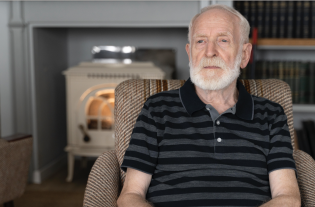One of the most frequent pieces of advice given to new mothers trying to organise a good sleep and wake cycle for their newborn babies is creating a sleep ritual.
This is a routine that makes babies feel secure, with the repetition of reassuring and tender gestures and actions that prepare them to sleep well.
Sleep changes at every stage of our life, as does the functioning of our body and the needs of our brain. What does remain constant, however, is the importance of the quality of our sleep, which guides our physical and mental equilibrium and effectively influences our quality of life.
Furthermore, this historical moment in time is seeing an increase in mental health issues, often associated with alterations and disturbances of our sleep.
The two years of the pandemic that we have been through, and the continuing state of emergency, has led to major changes in our everyday lives, creating alterations that have undermined the physical and mental well-being of both adults and children.
So, how can we organise a reassuring and pleasant sleep ritual for ourselves and our loved ones, in every stage of our life?
What strategies can we use to protect proper functioning of our brain and ensure that we get a good night’s rest?
Here are our suggestions:
In order to be defined as such, a ritual must involve the repetition of certain actions, performed in the same settings and with a constant pace. Besides deciding where and when to go to bed, it is therefore also important to consider all those elements that could disturb our routine.
In practical terms, it is a good idea to consider carefully whether the place where we sleep meets all the specific needs associated with our state of health. We should consider all the elements in that setting.
Bed and mattress:
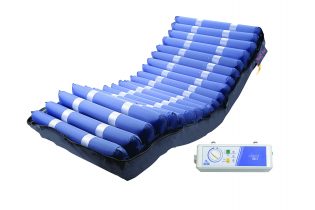 Do the bed frame and the mattress offer us the support and comfort we need? A moving bed frame at the upper or lower part of the body could help deal with problems such as reflux or circulation, for example. An anti-decubitus mattress, on the other hand, is a good choice when a large amount of time is spent in bed, to the point of becoming an integral part of the day.
Do the bed frame and the mattress offer us the support and comfort we need? A moving bed frame at the upper or lower part of the body could help deal with problems such as reflux or circulation, for example. An anti-decubitus mattress, on the other hand, is a good choice when a large amount of time is spent in bed, to the point of becoming an integral part of the day.
Pillows and positioning cushions:
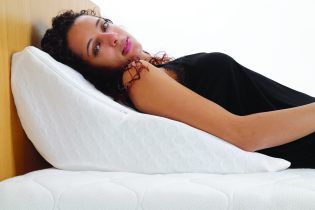 What position do you sleep in? The answer to this question is not as simple as it sounds. While we can all say easily what position we fall asleep in, it is much harder to control our posture when we are actually sleeping, something that can undermine the quality of our rest.
What position do you sleep in? The answer to this question is not as simple as it sounds. While we can all say easily what position we fall asleep in, it is much harder to control our posture when we are actually sleeping, something that can undermine the quality of our rest.
A positioning cushion can offer simple and tangible support against assuming an incorrect posture in bed.
Minor aches and temperature:
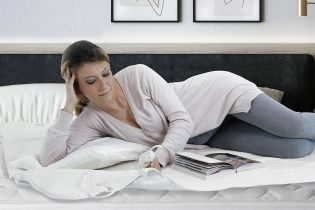 “Keep it warm and it will feel better” our grandmothers used to say and the most recent medical studies have confirmed that they were right. Heat treatment, localised at the painful part using a heating pad or extended to the entire body using a heated bed cover, contributes to soothing inflammation and pain, allowing deep and long-lasting relaxation. This is essential for a good night’s sleep.
“Keep it warm and it will feel better” our grandmothers used to say and the most recent medical studies have confirmed that they were right. Heat treatment, localised at the painful part using a heating pad or extended to the entire body using a heated bed cover, contributes to soothing inflammation and pain, allowing deep and long-lasting relaxation. This is essential for a good night’s sleep.
Sleep apnoea and other sleep disorders
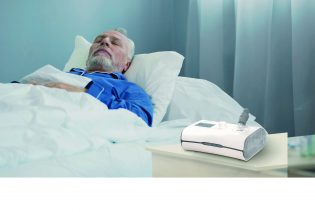 Sleep apnoea is a pathology that causes cyclic pauses in breathing while sleeping. This condition results in continual reawakening and therefore low-quality sleep, which has a major impact on the physical and mental well-being of sufferers.
Sleep apnoea is a pathology that causes cyclic pauses in breathing while sleeping. This condition results in continual reawakening and therefore low-quality sleep, which has a major impact on the physical and mental well-being of sufferers.
It can cause tiredness, difficulty concentrating, irritability and even depression.
A valid aid in dealing with this condition, and with other sleep disorders or during recovery from Covid, can be provided by the use of positive pressure ventilators or CPAP/APAP.
Personalised care
A drop of perfume before going to bed, slowly brushing your hair, taking time to look at yourself in the mirror or a drop of perfumed cream. In order to slow down our thoughts, we need to focus on small actions, caring for ourselves and for our loved ones with gestures that satisfy our own and their personal tastes.
We need to go back to our childhood in a certain sense, rediscovering the strategy that works better than any other: tender loving care.
Sleep well

